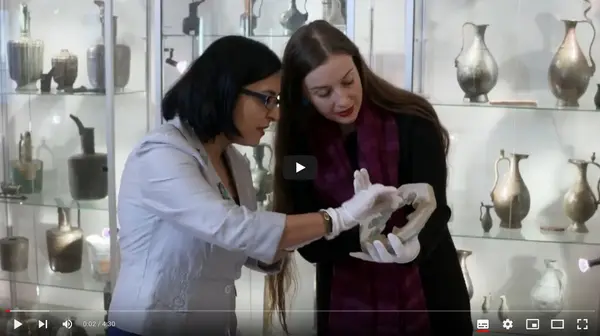



Small Disciplines at the University of Bamberg
Subjects such as Iranian Studies, Digital Technologies in Heritage Conservation or Music Pedagogy have one thing in common: they are small disciplines. According to the Mainz Office for Small Disciplines, at present there are 29 small disciplines with 33 chairs and professorships at the University of Bamberg. They shape both the networking focus areas in research and the range of degree programmes, which has a comparatively large number of specialised master’s programmes.
The small disciplines have been nurtured and continuously expanded for years: in the past 20 years, twelve professors have for the first time taken over a new professorship or the chair of a small discipline in Bamberg. This has led to Bamberg having the highest total number of disciplines in Bavaria. The small disciplines are a central element of Bamberg’s teaching and research profile – especially in the Humanities Faculty, which is home to the majority of the small disciplines. Former President Prof. Godehard Ruppert ThD PhD says:
“Over the past 20 years, we have deliberately established chairs and professorships for small disciplines that elsewhere are only available as partial denominations or have been closed down. A knowledge-based society such as ours would do well to give space to less popular topics and allow for uncommon questions. It is often the small disciplines that unite with other disciplines to take on this important task.”
What is a small discipline?
A discipline is considered small if it has no more than three permanent professorships at any German university. In contrast to dependent subdisciplines, a small discipline has a specialist society and a specialist journal. German universities have their own professorships with specific denominations for the respective academic branch and the professors understand the branch as an independent discipline. Last but not least, small disciplines are integrated into academic teaching with degree programmes or visible areas of specialisation.
What professorships does the University of Bamberg currently have in the small disciplines (as of March 2021)?
General Linguistics | Ancient History | Cultural Informatics | Arabic Studies | Labour Studies | Medieval and Post Medieval Archaeology | Archaeology of the Roman Provinces | Building Archaeology | Demography | Heritage Conservation | German as a Foreign Language | Digital Technologies in Heritage Conservation | European Ethnology | Greek Studies | Historical Geography | Auxillary Sciences of History | Iranian Studies | Islamic Art and Archaeology | Islamic Studies | Jewish Studies | Latin Studies | Literature and Media | Media Informatics | Music Pedagogy and Music Didactics | Materials and Preservation Science | Slavic Art and Cultural | Slavic Literary Studies | Slavic Linguistics | Turkish Studies | Prehistoric and Ancient Archaeology | Economic and Social History with Special Emphasis on Labour and Education
How do the small disciplines relate to the research focus areas?
Small disciplines are increasingly setting new emphases in the research foci. The Centre for Medieval Studies (ZEMAS) is involved in the Medieval Culture and Society research focus. Twenty years ago, it was the first interdisciplinary merger at the University of Bamberg – now almost 50 medieval disciplines are involved, including numerous small disciplines such as Jewish Studies, Slavic Studies or the Auxiliary Sciences of History.
The Digital Humanities, Social and Human Sciences research area focuses on the potential of small and large disciplines for digitalisation. Together with their colleagues from Latin Studies, Digital Technologies in Heritage Conservation or Political Science, researchers in applied computer science apply methods from computer science such as language processing or data visualisation to address research questions with new tools. Labour Studies, for example, is also a small discipline involved in the Empirical Social Research on Education and Labour focus area.
A particularly large number of small disciplines work together in the Analysis and Preservation of Cultural Heritage specialisation focus. European Ethnology, Islamic Art History, the professorships and chairs of Heritage Sciences or Archaeology – they all fall under the definition of the Mainz office. In cooperation with the two chairs of the large discipline Art History, scholars have made it their mission to use cultural assets to gain insight into past life worlds and to preserve this material evidence for future generations.
